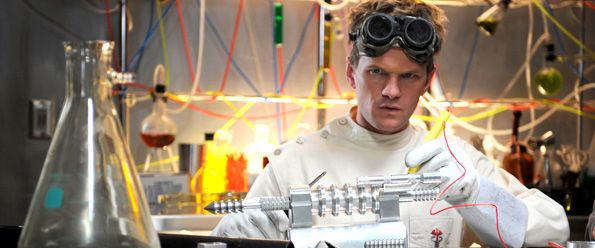Ethics in Science

I've had a long-term interest in the practical ethics of science. Starting with a workshop in research ethics education as a graduate student, I've sought to better understand the everyday ethical issues that scientists face and find efficient ways to address those issues. I'm also interested in how future scientists learn standards of ethics, and how operational best practices can vary among fields.
The major product of this interest was a set of case studies, co-authored with Kevin Geedey of Augustana College, intended for teaching and discussing ethical principles as they apply in ecological research. These case studies were serialized and published over a year in Frontiers in Ecology and Environmental Science and later published by the Ecological Society of America as the booklet Ethical Issues in Ecology: Case Studies.
Below, I give a brief description of the issue for each case, and have .pdfs of some of them. We are always interested in hearing from people who use the cases, whether in lab meetings, classes or elsewhere, so email me (mylastname at biol[dot]sc[dot]edu) with any thoughts or critiques, or just to tell us you're using them. If you want the whole set to use in a course, workshop or other formal format, please consider purchasing the set through the ESA link above (all proceeds go to ESA). Currently, I am thinking about how to incorporate practical ethics education into undergraduate lab classes, and welcome any students who have interests in pursuing this.
Adventures of the Mad Scientist. The basic description of what cases are and how to use them in the context of research ethics.
Planning an Invasion. Our first, and most commented upon, case is associated with manipulating the environment.
The Big Story. What happens when you're asked to speak with the press about something that's not quite your area of expertise? What if "the press" is your school paper?
Polluted Objectivity. Conflicts of interest are typically viewed as financial. But what if your research and political goals are related?
The Stats Guy. Issues associated with relying on someone else for part of your work, particularly in the context of grad student education. This case can be steered toward a discussion of grad-mentor relationships, or to the nature of modern collaborations in science.
The Job Search. Focuses on responsibilities in mentor-grad student relationships, and also deals a bit with the morality of secrets.
The Statute of Limitations. Who owns ideas that are presented informally, but in public? Who has the right to pursue them? (co-authored with Karen Muskavitch.)
The Methods Actor, part 1. Although nominally about what constitutes good methods reporting, the case really revolves around the delicate nature of responding to someone you're working with who may not have been employing best practices.
The Methods Actor, part 2. This part focuses on best practices and integrity in reporting methods.
The PR Job. This case deals with a young researcher confronted by potentially conflicting obligations.
The Extra-Credit Activist. Here we focus on professor-student relationships within a course, and just how far you can go with assignments with real-life effects.